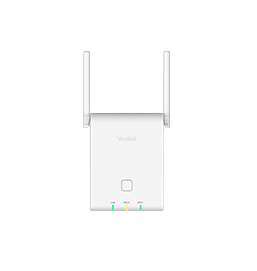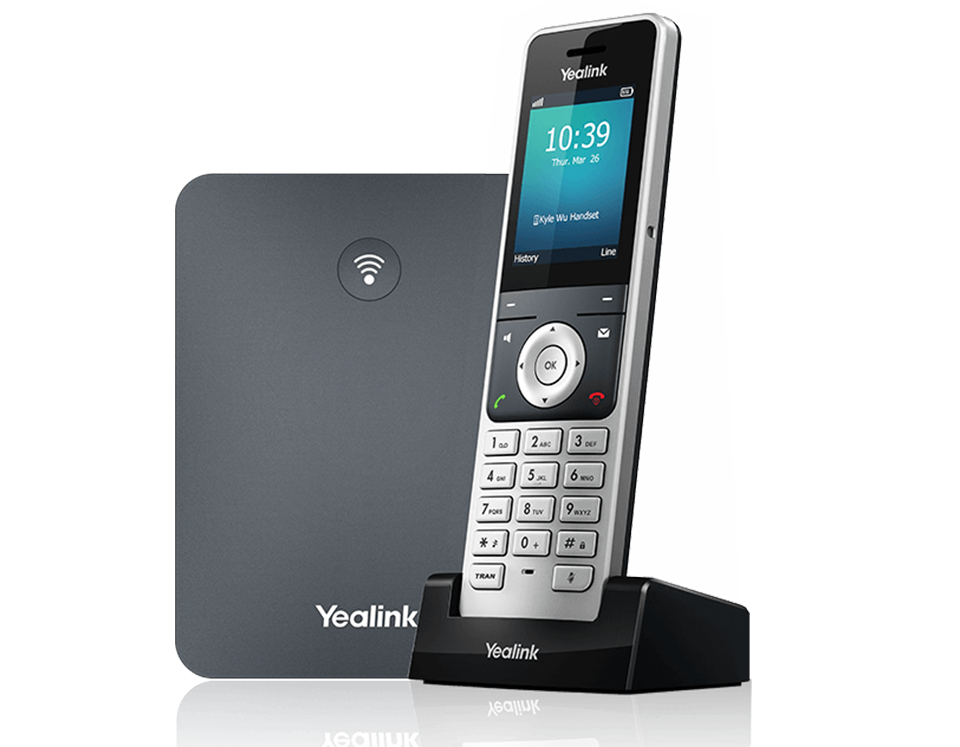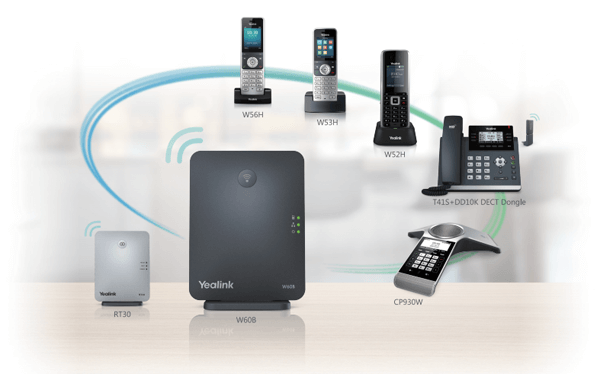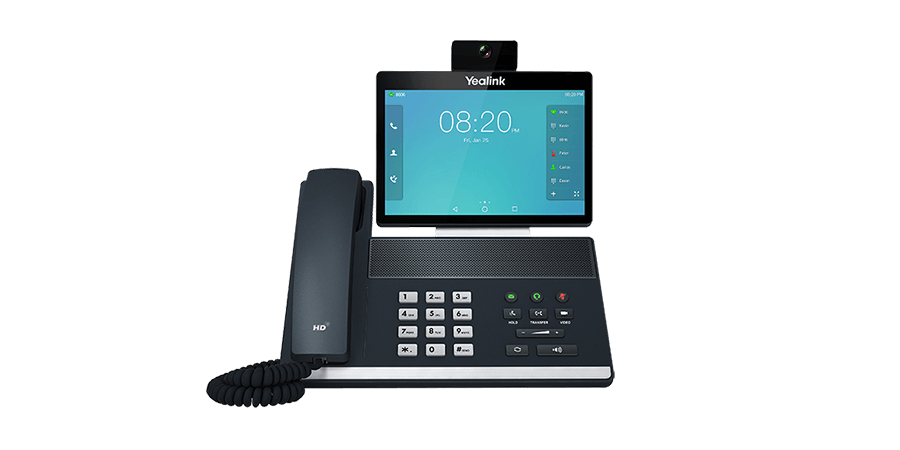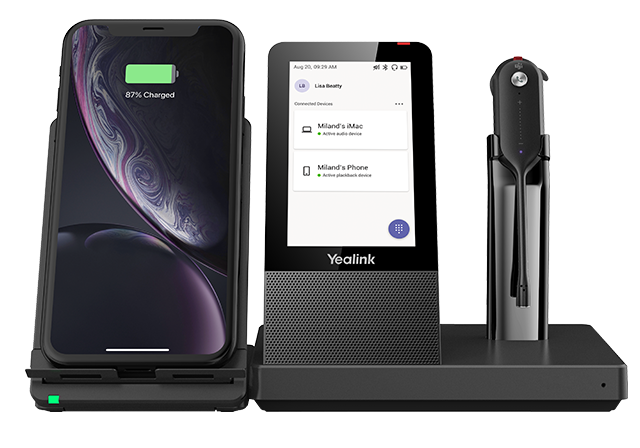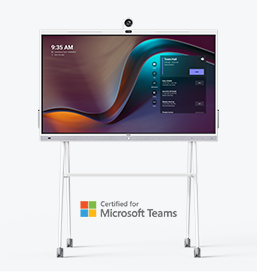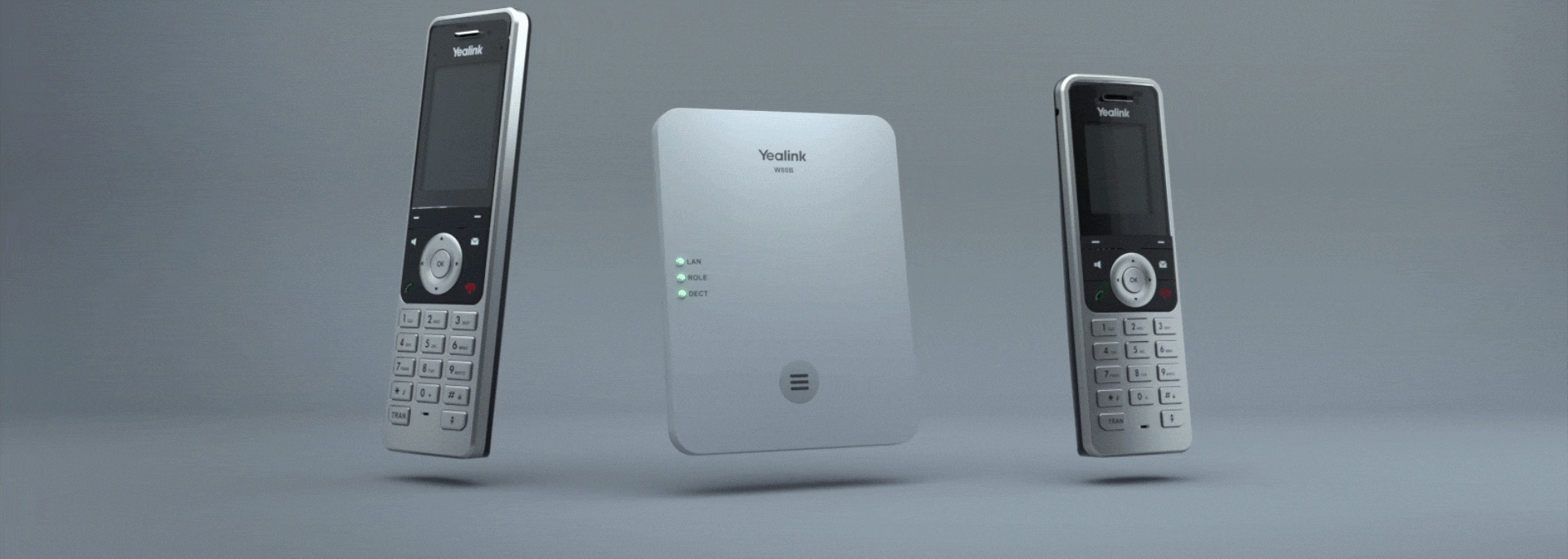

What Is Dect Phone ?
DECT phone, which stands for "Digital Enhanced Cordless Telecommunications", It is a type of wireless telephone system that allows for cordless communication within a limited range.It is a wireless communication technology that operates at 1.9GHz (with slightly different frequencies in different countries, up and down 1.9GHz), Its anti-interference, security, professionalism, and seamless roaming experience are better than WIFI. DECT phone is widely used in Market, Retail Store, Large Office, SOHO, Warehouse, Hotel and other places,providing the convenience of a cordless phone without sacrificing call quality or security.
The Application Scenario Of Dect Phones
Why Use Dect Phone Instead Of Cell Phone?
1) There are thick walls and metal structures in factories and warehouses; -- The carrier's signal is not good.
2) In order to facilitate the work, people often need to put the phone tool on the waist; -- In case of a fall, the smartphone may directly break the screen.
3) Better sound quality, support HD broadband sound quality.
4) More rich functions, such as Transfer, Conference.
5) Unified address book.
The Differences With Ip Phone
DECT phone and IP phone are two distinct types of telecommunication devices that serve different purposes and utilize different technologies. Here are the key differences between DECT phones and IP phones:
Wireless Technology: DECT phones are wireless phones that use the DECT standard to communicate. DECT is a technology specifically designed for cordless telephony, providing good range and call quality.
Range: DECT phones typically have a range of around 50 to 300 meters indoors, depending on factors like obstacles and interference. This makes them suitable for home or small office environments.
Base Station: DECT phones require a base station that is connected to a landline telephone line. The base station is responsible for connecting the wireless DECT handset to the telephone network.
Call Quality: DECT phones generally provide good call quality, as they use a dedicated frequency band for voice communication, minimizing interference.
Mobility: DECT phones offer mobility within their range, allowing users to move around while making and receiving calls.
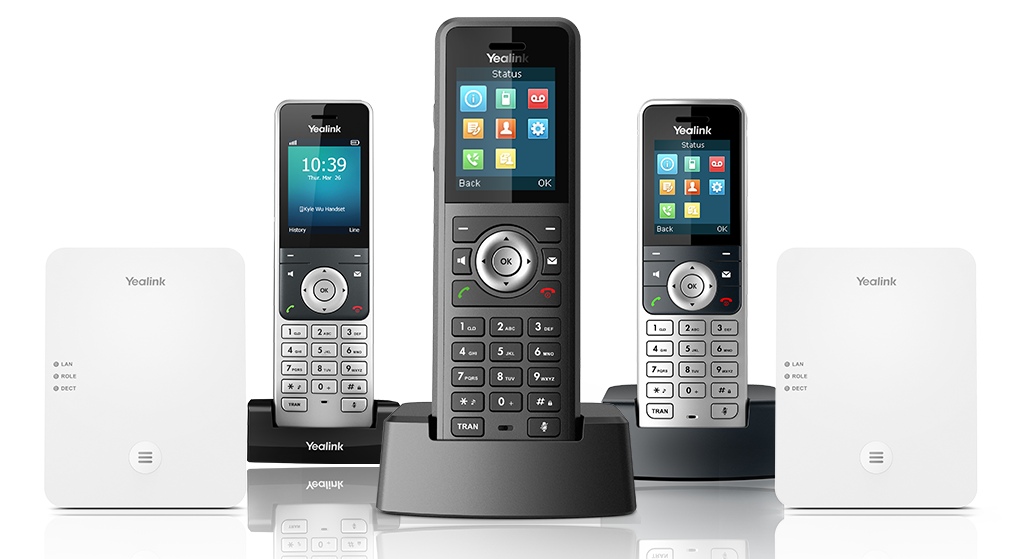
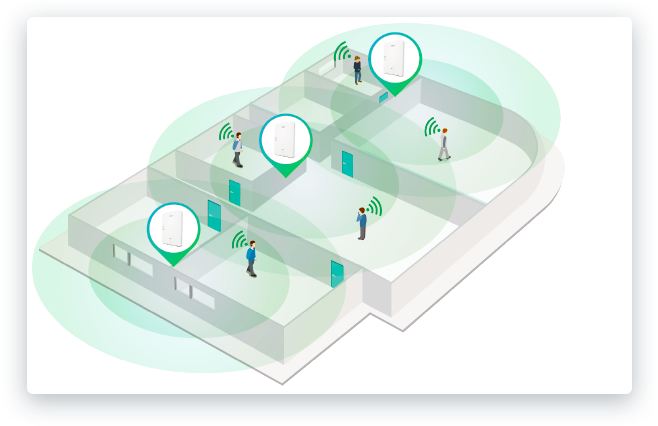
How To Choose The Right Dect Phone For Your Business
You need to consider these factors together before purchasing a dect phone:
1. Clarify the usage scenarios of dect phone
2. Define which functions are needed, such as environment and distance, number of employees, mobility, signal stability (uninterrupted), sound quality, battery life, conferencing, etc.
3. Budget: Understand your own budget and product price
4. Brand and after-sales: choose
If you don't know how to choose and buy, you can contact our sales, and the phone deployment experts will provide professional and complete solutions according to your specific situation.
Yealink Full-range Of DECT Phone Solutions
Yealink DECT IP phone system is also compatible with Yealink whole series of DECT endpoints including handsets, conference phones and DD phones,
offering additional choices for building up wireless communication network in various workspaces across small and medium size business.
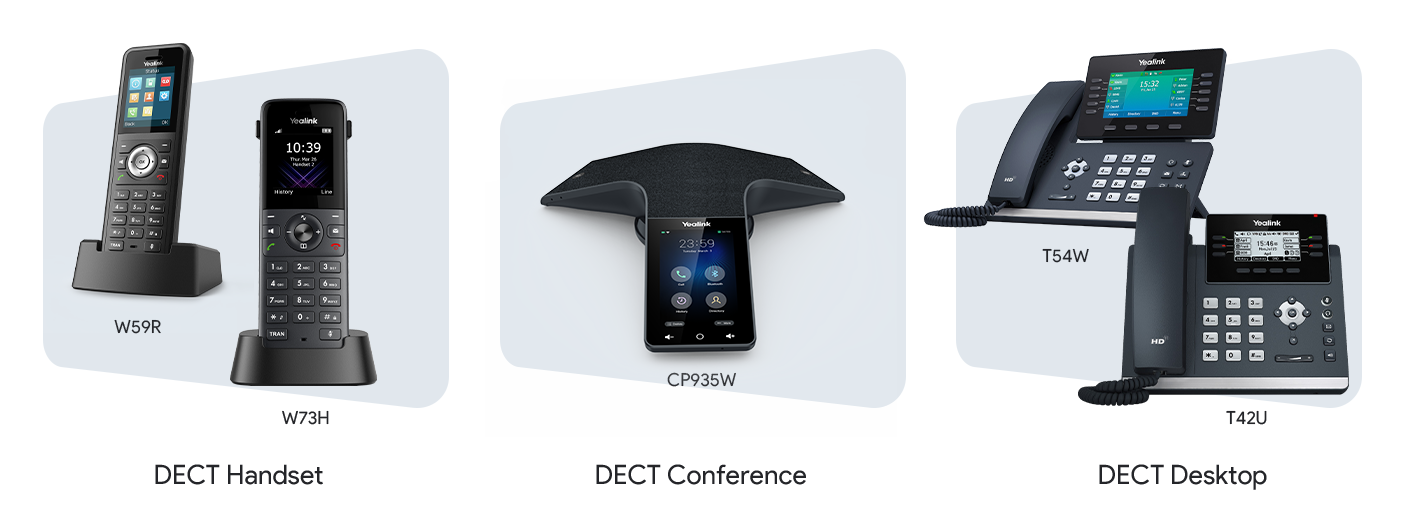
Contact Sales
Please fill in and submit the information below and our representative will contact you soon.
DECT phone are wireless telephones that use dedicated frequency bands to communicate, while VoIP phones are devices that use the Internet or IP networks to transmit voice and multimedia data. It's worth noting that advancements in technology have led to the development of hybrid devices that combine DECT and VoIP capabilities, allowing users to benefit from the mobility of DECT phones while leveraging the advantages of VoIP services.
As a popular choice for wireless communications, Dect phone have the advantages of free movement, wide coverage, high voice quality, good security, ease of use, dedicated frequency bands, long battery life, integration with landline, use of multiple phones, calling function, and more affordable cost. Small offices and other environments where users need cordless phones without relying on mobile networks or VoIP services.







